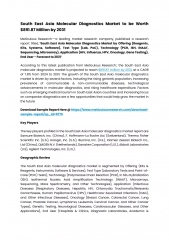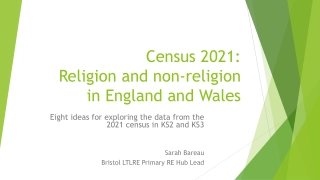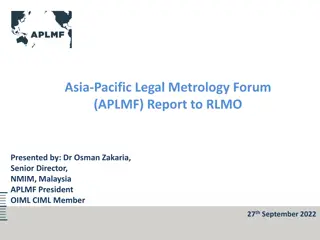Understanding Lived Religion in East Asia: Insights from Nancy Ammerman at Boston University
Lived religion in East Asia goes beyond beliefs, focusing on practices, communities, and belonging. Experts suggest looking at ethnographies to understand which practices are considered religious. This concept de-centers belief and emphasizes community discourse and social structures. Gender plays a crucial role in the social placement of lived religion, both at the center and margins of society.
Download Presentation

Please find below an Image/Link to download the presentation.
The content on the website is provided AS IS for your information and personal use only. It may not be sold, licensed, or shared on other websites without obtaining consent from the author. Download presentation by click this link. If you encounter any issues during the download, it is possible that the publisher has removed the file from their server.
E N D
Presentation Transcript
CAN A SURVEY CAPTURE LIVED RELIGION IN EAST ASIA? Nancy Ammerman Boston University
Lived Religion is about practices Ask about what people do But how to decide which practices count as religious Ask the experts Look at ethnographies
Lived Religion is about actual people Clergy & religious virtuosi aren t the yardstick
Lived Religion decenters belief It places belief in a community of discourse. So are there communities with enough coherence to produce belief discourse that can be measured on a survey?
Lived Religion decenters belonging Where organizational membership doesn t make sense, what other forms of belonging do? Where and how do people gather? What organizations promote & support that gathering?
Lived Religion points to belonging through practice Attachment focused on Space Materiality Emotion Embodiment
Lived Religion is socially situated Gendered Within structures of power At both the center and the margins of society





![READ⚡[PDF]✔ Emerging Space Powers: The New Space Programs of Asia, the Middle Ea](/thumb/21554/read-pdf-emerging-space-powers-the-new-space-programs-of-asia-the-middle-ea.jpg)

















